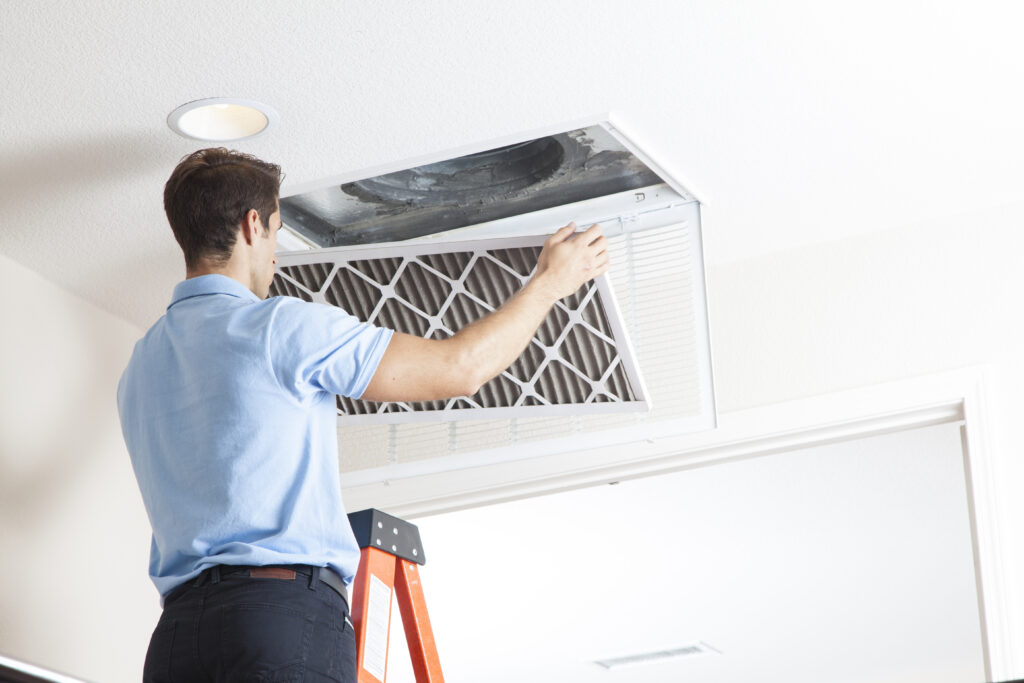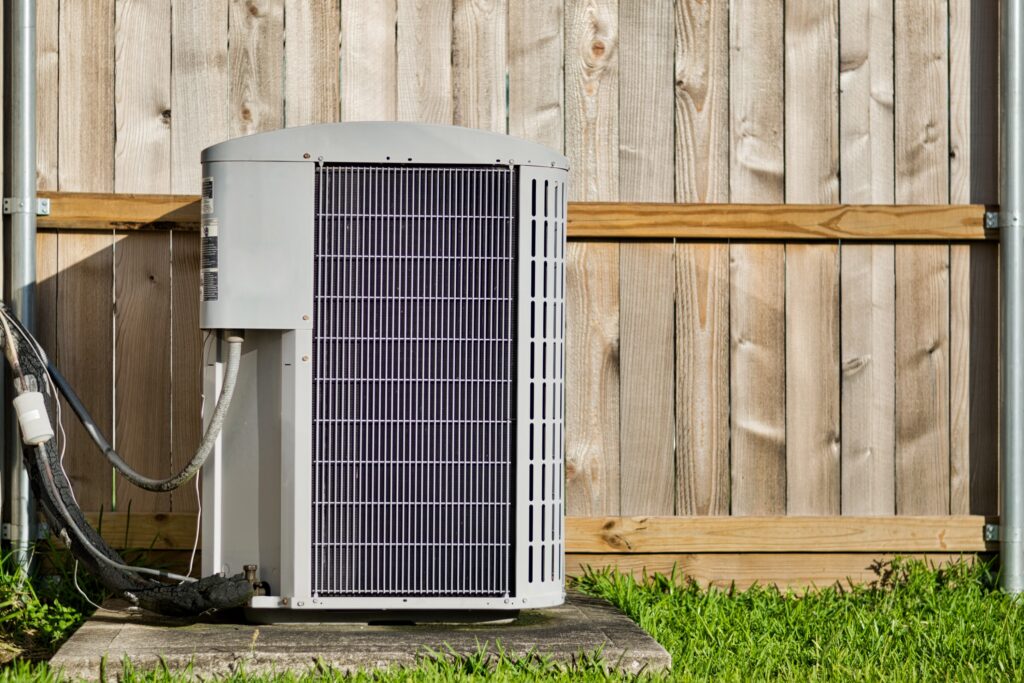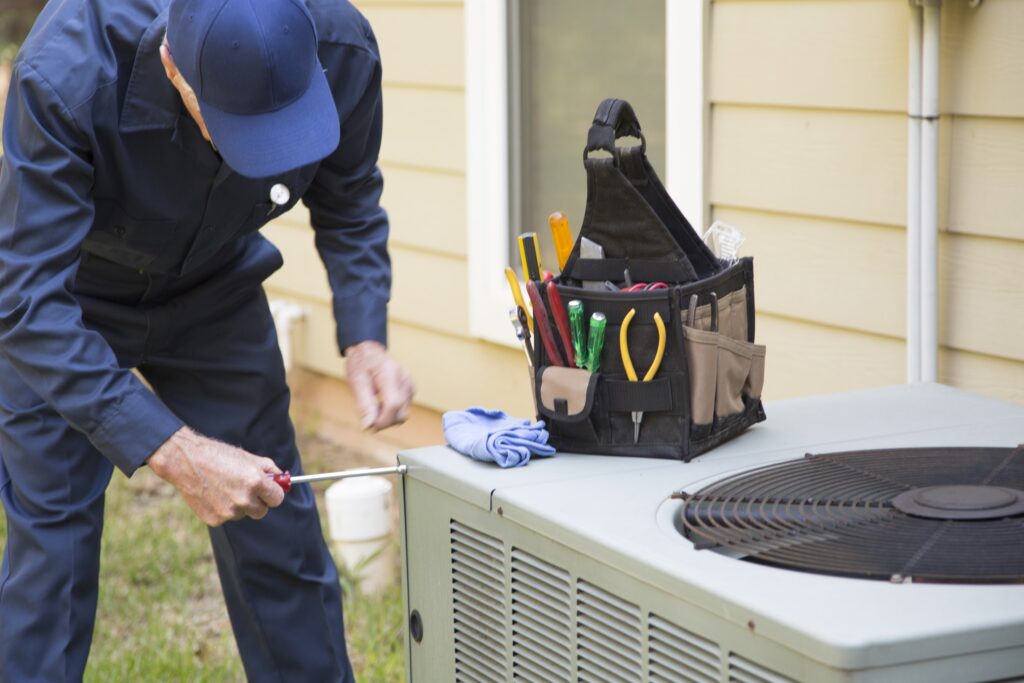As allergy season approaches, maintaining clean air ducts becomes even more critical for ensuring good indoor air quality. Dirty ductwork not only compromises the efficiency of your HVAC system but also exacerbates allergies and respiratory issues by circulating dirt, allergens, and other airborne debris throughout your home. Masters Heating & Cooling, Northeast Indiana’s leading indoor air quality experts since 1980, understand the importance of clean ducts for your wellbeing. In this blog post, we aim to explain the significance of having your ductwork professionally cleaned and how it can help you breathe easier during allergy season.

What Allergens May Be In Your Air Ducts?
Ductwork can harbor a variety of allergens that contribute to poor indoor air quality. Common allergens found in air ducts include:
- Pollen: These tiny particles can enter your house through open windows and doors, then settle in your ducts. Pollen is a major trigger for seasonal allergies.
- Dust: Household dust consists of various components, including skin cells, fabric fibers, and dirt, which can accumulate in your ductwork and exacerbate respiratory issues.
- Pet dander: Pets shed skin flakes known as dander, which can become trapped in your air ducts and cause allergic reactions in sensitive individuals.
- Mold spores: Moisture in your ducts can lead to mold growth, releasing spores into the air that can trigger allergies and respiratory problems.
These allergens can significantly affect those with breathing issues, making it essential to keep your ductwork clean.
How Regular Air Duct Cleaning Can Help
Regular air duct cleaning can remove these allergens and improve the overall air quality in your home. Here’s a breakdown of the duct cleaning process:
- Initial inspection: Your technician begins by inspecting the supply and return ducts, registers, diffusers, grilles, system coils, condensate drain pan, fan motor, and the cabinet housing the system. This step identifies the extent of buildup and any specific issues that need to be addressed.
- Preparation: Before cleaning, the technician prepares the area by moving furniture and belongings to access all vents, secures pets, and ensures a clear path to the HVAC equipment.
- Cleaning process: Using a specialized vacuum, the technician cleans the ducts. This involves removing vent grates, using mechanical brushes to dislodge dust, and thoroughly cleaning the vent grates. Small leaks may also be fixed during this process.
- System testing: After cleaning, the technician tests the HVAC system to ensure it is dust-free and operating correctly.
Your ductwork can be cleaned every three to five years, or more frequently if you have allergies, pets, or live in a dusty environment.
More Ways To Fight Allergy Season
We want you to be as comfortable as possible. In addition to air duct cleaning, here are some other ideas to help you combat allergies.
- Change HVAC filters: Replace your HVAC filters every one to three months to maintain good air quality.
- Keep windows closed: Prevent outdoor allergens from entering your space by keeping windows shut.
- Add an air purifier: Use an air purifier to remove allergens and improve indoor air quality.
- Control humidity: Maintain indoor humidity levels between 30% to 50% to prevent mold growth.
Depend On Masters For Spring HVAC Maintenance
Clean air ducts are essential for a healthy home environment. Masters offers professional air duct cleaning services to ensure your indoor air remains pure. Our licensed, insured, and NATE-certified technicians have extensive experience servicing all brands of HVAC equipment and understand ductwork systems inside out. We provide free estimates on replacement quotes, upfront pricing, financing options, and military, veteran, and senior discounts. Our background-checked technicians guarantee reliable and trustworthy service.
Don’t let dirty ductwork ruin your nasal passages. Schedule your air duct cleaning service with Masters Heating & Cooling today. Masters Gets There Faster.






